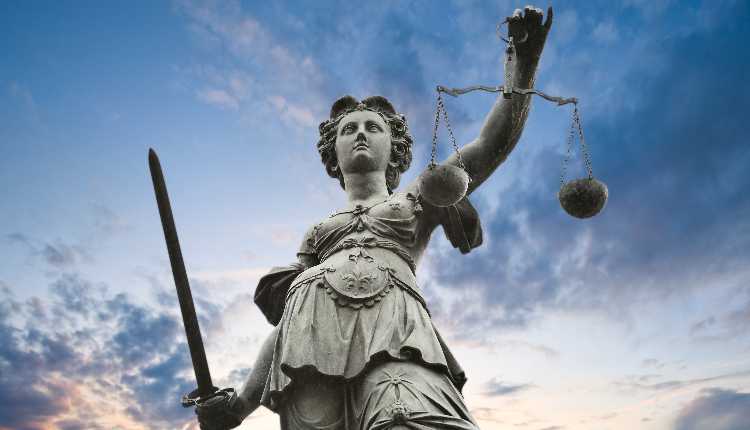The Judiciary holds power to keep a check on the other two organs of the government, i.e. legislative and executive. The judicial review has gone through many phases of trial and error. The limitations and the powers of judicial review were scrutinized to ensure the proper functioning of the government.
The history of Judicial review is very interesting as it established a new framework in the functioning of the government and stopped the discretion at the side of the government.
HISTORY
The origin of the Judicial Review can be traced back to the case of “MARBURY V. MADISON, 1803″. The whole case revolved around the declaration of ‘Justice of Peace. Marbury, who was declared as the justice of the peace by the existing President John Adams, did not get the letter of commission which is needed to join the position of ‘Justice of Peace’ after the approval from the Senate. John Marshal, who was the secretary of state for the existing president, “John Adams’ was assigned the job of distributing all the letters of commissions to 42 Justices of Peace and 16 Circuit Judges, which happened to be impossible to execute in a day. Marbury was one of those appointed Justices of Peace who did not receive the letter of commitment. Marbury went to the court and filed a petition asking the court to grant him the writ of “Mandamus“. A writ of Mandamus is a judicial remedy in the form of an order by any Court given to corporations, public authority, government, or subordinate courts instructing to perform a specific act that that particular body is bound to perform under the law.
The court held that according to Section 13 of the Judiciary Act of 1789, the court couldn’t grand the writ of mandamus because it didn’t follow the constitutional restraints. The court also held that by extending the Original Jurisdiction authority, according to which cases affecting ambassadors, other public ministers, and consuls or the cases in which the state shall be the party can be accepted, the Congress has gone beyond the authority.
It was through this case that the idea of Judicial review was brought into the picture and held that the Supreme court is the equal branch of government, and whenever the government breaches the constitutional measures, the Supreme Court has the right to upheld the constitution.
Similarly, In India, the Judicial Review is held in the Art.13 of the Indian Constitution, which clearly states that the supreme court has the power to strike down an unconstitutional legislature. Article 32 and 226 doesn’t include the word judicial review but
explains that Judiciary has the power to exercise control on the government if the fundamental rights of human beings are infringed.
Article 136 grants the supreme court the power to give special leave to appeal from any judgment, determination, decree, a sentence in any cause of action or matter passed or made by court or tribunal in the territory of India.
All of these constitutional provisions specify and restricts the unlimited power of the parliament to amend the constitution.
The Golaknath V. State of Punjab was the case the power of parliament was analyzed under article 368 of the constitution. The judgment was laid down by CJ (Chief Justice ) Subba Rao. The judgment read that the power of the judiciary or the power of judicial review does constitute the basic structure of the constitution.
Again, in the case of “KESHAVNANDA BHARTI V. STATE OF KERALA & ANR, 1970″, Justice H.R. KHANNA clearly asserted the basic structure doctrine of the Indian Constitution and any provisions which hinders the constitutional principles and values must stand invalid.
The 39th Constitutional Amendment on 10th August 1975 was challenged in the court by filing a petition. The case named ” INDIRA GANDHI V. RAJ NARAIN” discussed the amendment which restricted the court and others to challenge the election of Prime Minister, Vice-president, President, Speaker in the court and if at all challenged, it should be a forum made by the parliament.
The Supreme Court, throughout the journey, has stated that the constitutional principles are supreme, and nobody shall hold the right to change or amend the constitutional principles or the basic structure of the constitution.
Similarly, in the case of “MINERVA MILLS V. UNION OF INDIA AND ORS”, the court held that the power of parliament to amend the constitution is restricted and limited by the constitution, and hence, the parliament doesn’t hold power to grant or provide itself with the unlimited authority to amend the constitution. Therefore, the parliament cannot change or emasculate the fundamental rights of the constitution, including the right to equality and liberty.
Article 368, which gives the power to the parliament to amend the constitution, cannot be expanded and used to destroy the basic and essential features of the constitution.
It was stated by honourable justice Ahmadi that it is presumed that the legislature, executive, and judiciary know their functions, limitations, and duties, and if the executive performs its functions honestly, it will automatically follow the laws laid down by the legislature without implementing or looking at any compulsions that are mentioned in the constitution. Similarly, the executive branch will also get along with the judicial guidelines. The Supreme Court has, again and again, held the sovereignty of the constitution in different cases and landmark judgments. For instance, “NAVTEJ SINGH JOHAR V. UNION OF INDIA”, which upheld the constitutionality of Section 377 of the Indian Penal.
Code. Therefore, the Judicial review can be explained and proofed through all these constitutional provisions and cases.
Conclusion
Therefore, the role of the judiciary in reviewing the actions that are performed by the executive and judiciary does play a very important role in the maintenance of law and order. It ensures that the government doesn’t possess absolute power and if any law brought by the legislature hampers the basic structure of the constitution.


